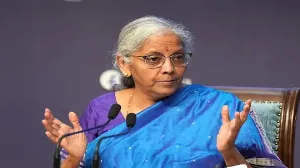Zohran Mamdani’s Bollywood-Inspired Victory in New York Draws Global Attention
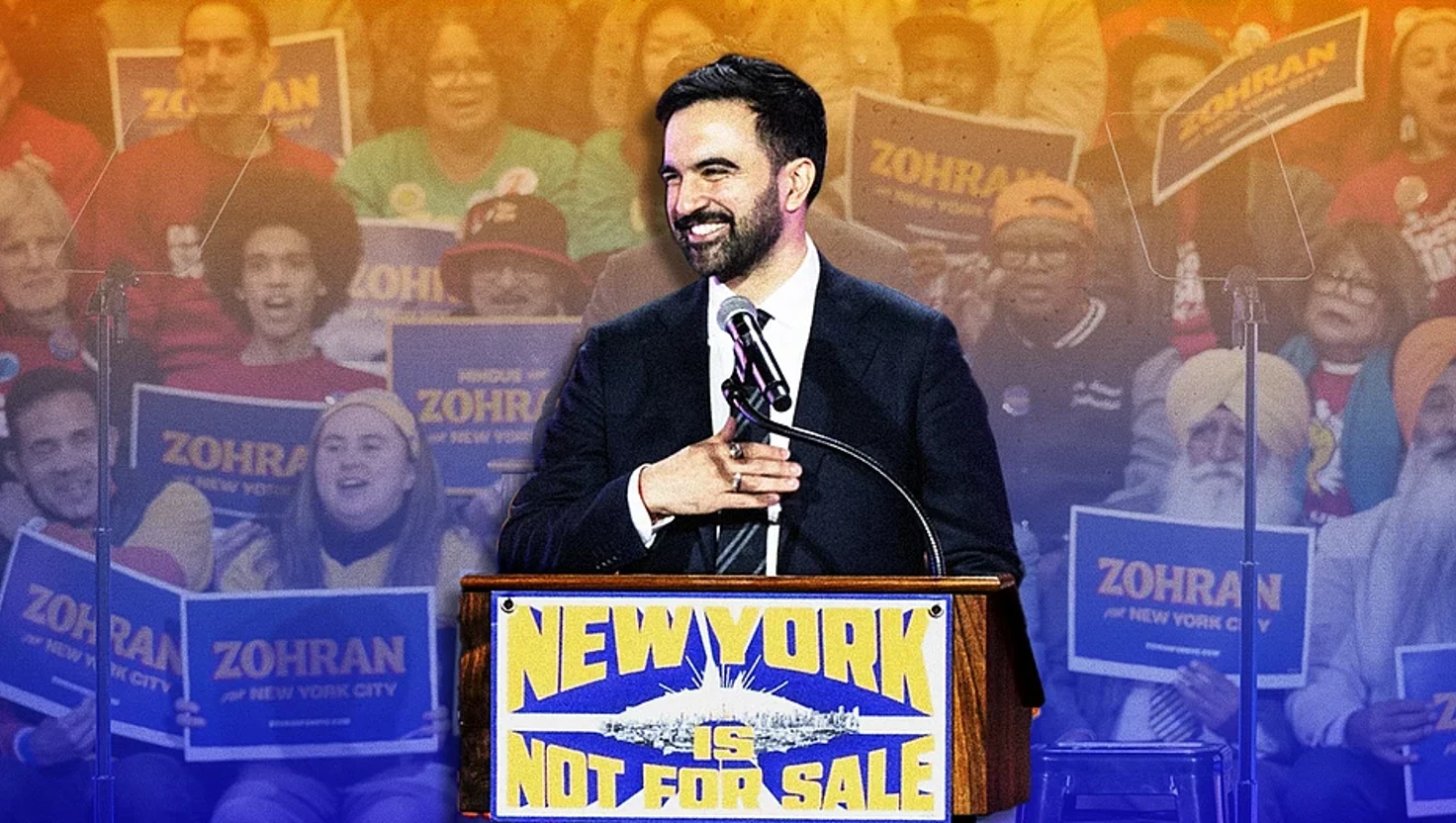
Zohran Mamdani, the 34-year-old Indian-origin politician elected as New York City’s first Muslim mayor, is attracting international attention once again as his Bollywood-inspired campaign content circulates widely online. His victory in the 2025 mayoral race, achieved against former New York Governor Andrew Cuomo and Republican candidate Curtis Sliwa, has renewed interest in the unconventional political style that helped him mobilise diverse communities across the city.
Mamdani, who has served as a New York State assemblyman representing Astoria in Queens, built a campaign rooted in grassroots outreach and cultural storytelling. Much of the focus in recent days has been on his use of references from Hindi cinema, including iconic scenes and well-known musical sequences, which his team adapted to explain political ideas and appeal to South Asian and immigrant voters.
One of the most widely shared videos recreated a famous sequence from the 1975 film Deewar, in which actor Amitabh Bachchan lists his wealth. Before the scene concludes, the campaign replaced the clip with Mamdani standing in a pose popularised by Bollywood star Shah Rukh Khan, responding simply, “Aap”, meaning “I have you.” Set to the song Deewangi Deewangi from the 2007 film Om Shanti Om, the video struck a strong chord among viewers with links to the Indian subcontinent. In another campaign reel, a line from the 1980 film Karz was adapted to introduce New York’s ranked-choice voting system, using glasses of lassi to demonstrate how the process works.
According to News9Live, Mamdani also invoked cinematic language during his public appearances, including a remark aimed at his opponents that “billionaires already have everything”, followed by the assertion that the time had come for ordinary people. His messaging consistently linked cultural references to policy ideas, making the campaign accessible to voters across ethnic and generational lines.
His victory celebration in Brooklyn further reinforced these themes. After delivering a speech in which he declared that New York was “a city of immigrants … powered by immigrants, and as of tonight led by an immigrant,” he left the stage to the Bollywood song Dhoom Machale, accompanied by his wife and his mother, the acclaimed filmmaker Mira Nair. The closing sequence attracted millions of views online, with commentators calling it one of the most distinctive moments in recent American political history.
Mamdani’s path to office was far from certain. As reported by Newslaundry, he faced significant resistance during the primaries, including attack mailers and low initial polling figures. In one meeting, he recalled seeing an early poll that placed him at just one per cent support. “I want to tax the one per cent, not be at one per cent,” he said, describing how his team remained committed despite the odds. By late summer, his grassroots mobilisation was visible across New York’s boroughs, particularly in working-class neighbourhoods with large Black, Latino, East Asian and South Asian populations.
Born in Kampala, Uganda, to Indian-origin parents before moving to the United States as a child, Mamdani frequently spoke about how his background shaped his political identity. “India is near and dear to my heart,” he said during the campaign, adding that he hoped to govern in a way that reflected the experiences of immigrants across the city. His approach included promises to freeze rent, restore fare-free bus pilots, create a new department focused on community safety and mental health, expand childcare and raise corporate taxes to match rates in neighbouring New Jersey. He also proposed a flat two per cent city tax on individuals earning more than one million dollars annually.
According to local media cited in Newslaundry, Mamdani was critical of former President Donald Trump’s trade measures, arguing that many small business owners struggled to navigate unpredictable costs. He pledged to reduce city fines and fees by half, expand support for small businesses and appoint a “mom-and-pop czar” to assist local enterprises.
The election drew an unusually high turnout. Reports from New York Focus and other local outlets indicate that the city recorded its highest participation in half a century, with younger voters particularly active. Analysts attributed this shift partly to the efforts of progressive groups that organised early around Mamdani’s candidacy, working to avoid internal divisions that had affected previous elections.
Campaign volunteers canvassed extensively across the city, appearing at community parades, churches, temples and cultural events. In immigrant-rich areas such as Jackson Heights, long queues formed as residents waited to meet the candidate, many expressing pride in seeing someone with roots similar to their own running for the city’s highest office.
His campaign’s visual identity, dominated by purple and yellow signs reminiscent of New York’s transport and street-corner imagery, helped embed his message within the urban environment. Viral videos, TikTok clips and multilingual content in Hindi, Urdu and Spanish amplified his profile beyond traditional political channels.
The use of cultural references extended beyond humour. According to Exchange4Media, Bollywood dialogues such as “Roti, Kapda Aur Makaan” — a phrase meaning food, clothing and shelter — were deliberately used to highlight the city’s affordability crisis. Campaign strategists described their efforts as a form of “cultural political marketing” that translated complex policy issues into familiar, emotionally resonant messages.
Exit polls suggested strong support for Mamdani in areas with large student and young professional populations, including neighbourhoods near Columbia University. Cuomo, who ran as an independent after losing the Democratic primary, retained influence in parts of Staten Island, Queens and Brooklyn, particularly among older voters. Some supporters cited his previous tenure as governor as a reason for backing him despite the allegations he faced.
Nevertheless, Mamdani’s coalition held together across racial, generational and economic lines. Figures such as Senator Bernie Sanders and Congresswoman Alexandria Ocasio-Cortez publicly endorsed him, helping raise his profile nationally.
Context
Mamdani’s win has sparked wider conversations about the role of cultural identity in modern political communication. Analysts note that while earlier political campaigns in the United States have incorporated elements of cultural outreach, few have done so as extensively or as fluently as his. By blending policy with storytelling rooted in South Asian cinema and multilingual messaging, he appealed not only to the city’s large immigrant population but also to voters looking for unconventional, transparent and emotionally engaging politics.
Observers argue that the campaign has set a new precedent in New York City, demonstrating that culturally specific messaging can translate into broad-based political support when it is delivered with authenticity. Mamdani, for his part, reiterated that his focus was on building a city that remained welcoming in both spirit and policy. As he concluded during one of his final campaign events, echoing a well-known film line, he wanted New York to stand for “food, clothing and shelter for all.”

Brazilian Model Reacts to Photo Used in Indian Political Controversy
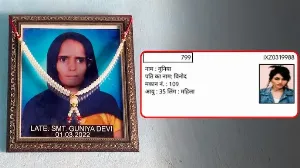
Deceased Woman's Name Appears on Voter List in Haryana
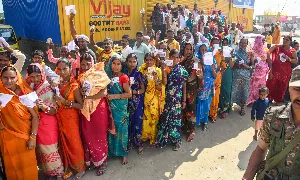
Bihar Election Phase 1 Sees Record Turnout Amid Minor Clashes And Political Allegations
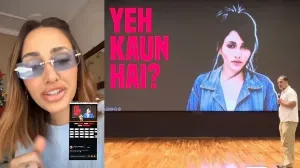
Brazilian Model's Photo Sparks Controversy in Indian Election Claims
